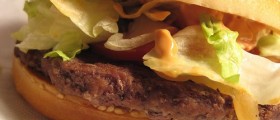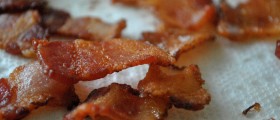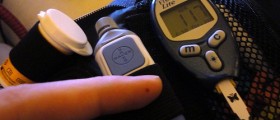
BAs most of us already know, this one of all-time favorite when it come to the eating preferences of a great number of people, is an “enhanced” version of the regular hamburger only enriched with one special ingredient, i.e. cheese. When it comes to its “inventor”, all the praise goes to one Lionel C. Sternberg originating from the Northeastern L.A. county, who came up with this simple yet unique recipe all the way back in 1920s. Nowadays, the original has undergone quite a few developmental phases and has come out of them completely reinvented with numerous other savory add-on ingredients.
Calories – factual data
Given the fact that cheeseburgers have been present on the food market for quite some time and that people have been indulging in them with utmost pleasure, quite sensibly they have begun to pay close attention to the amount of calories that a cheeseburger contains, as well as to its effect on the person’s overall health. Today it is quite normal for a cheeseburger to be accompanied by such variety of add ons like lettuce, tomatoes, pickles, fried eggs and even bacon. This is exactly one of the main reasons why a growing number of diet experts began to point out to the possible unwanted and health-harmful effects this type of fast food variety potentially holds. Due to the great amount of calories, it is recommended to avoid eating cheeseburgers on a regular basis – something many people fail to take into consideration once set to satisfy their hunger.
Potentially extremely harmful effects
Given the fact that cheeseburgers abound in cholesterol, they can bring about clogging of the arteries, which ultimately leads to and causes the heart attack.Pretty elevated calorie counts also cause obesity.Since it lacks fibers, cheeseburger can be one of the culprits for the improper functioning of the person’s digestive system.Heartburn is another on the list of common side effects of eating cheeseburgersCalorie counts
An important fact to know is that the nutrition value of a cheeseburger primarily depends on the variety of cheese used in the making, as well as on the toppings and various other add ons. The calorie count is as follows:
Regular, Single Patty, with Condiments and Vegetables 1 (154 gm) 360Regular, Double Patty and Bun, Plain 1 (160 gm) 490Regular, Double Patty, with Condiments and Vegetables 1 (165 gm) 415Large, Single Patty with Ham, Condiments and Vegetables 1 (255 gm) 730Large, Single Meat PattyWith Bacon and Condiments 1 (195 gm) 550Regular, Single Meat Patty, Plain 1 (100 gm) 300Cottage Cheese, Low fat, 1% Milk fat1 Cup (225 gm) 162Feta Cheese1 Cup Crumbled (150 gm) 395American Cheese 1 oz. (28.3 gm) 94Blue Cheese 1 oz. (28.3 gm) 100Mozzarella, Whole Milk Cheese 1 Cup Shredded (112 gm) 335Mozzarella, Part Skim Milk Cheese 1 oz. (28.3 gm) 72
















Your thoughts on this
Loading...